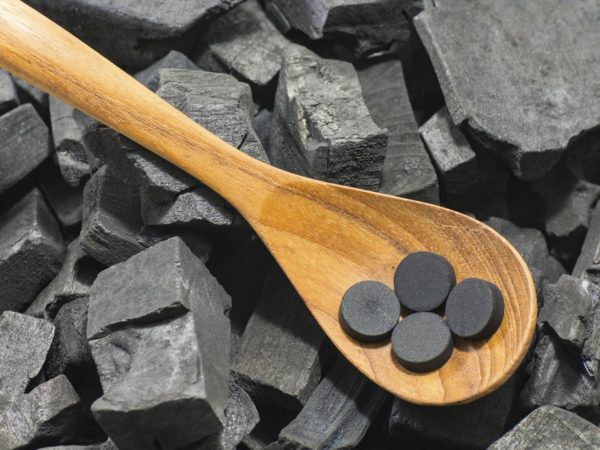Activated Charcoal for a Cleaner You?
I’ve heard that taking activated charcoal can rid the body of toxins, lower cholesterol, prevent hangovers and relieve intestinal gas. Does it really work for all these purposes? Do you recommend using it?
Andrew Weil, M.D. | October 8, 2013

Activated charcoal is a form of carbon that has been processed to create innumerable tiny pores, creating a large surface area for adsorption (adherence to a surface) of particles. It is a very old remedy for poisoning, but I do not consider it a cure-all or a means of protecting the body from environmental toxins. My own view is that the body does a good job of cleansing and purifying itself if you stop putting toxins in and focus on good nutrition, regular exercise, and other healthy habits. None of the many supplements and herbal products purported to detoxify the system and purify the blood are necessary to good health.
Claims that activated charcoal can reduce cholesterol, relieve intestinal gas (flatulence) and prevent hangovers haven’t been confirmed by scientific studies, so I wouldn’t count on it for those purposes. However, activated charcoal does have the ability to trap many times its own weight of toxic or unwanted materials in the gastrointestinal tract, preventing their absorption into the body. Hospital emergency rooms use activated charcoal to treat certain types of poisoning from medications, but it should never be used to treat ingestion of lye, sulfuric acid, cyanide, iron, ethyl or methyl (rubbing) alcohol, or petroleum products such as gasoline, paint thinner, or cleaning fluid. (It won’t work for these substances.)
Some physicians and toxicologists suggest keeping activated charcoal on hand to treat children who accidentally ingest household poisons. It is sold in most drugstores in both liquid and powdered forms; ask the pharmacist if you can’t find it on the shelves. Activated charcoal is also used as an emergency treatment for pets that eat poisonous plants, garbage or other potentially toxic items. (Your best bet in such cases is to get your pet to the vet as soon as possible.) As with humans, don’t give activated charcoal to pets that have ingested a corrosive substance.
Some activated charcoal products contain the artificial sweetener sorbitol, which acts as a laxative to help eliminate the poison from the GI tract, but don’t use them without the supervision of your doctor. They can cause severe diarrhea and vomiting.
Bottom line: If you or anyone in your household has ingested something toxic, immediately call your local poison control center. Then, if you have activated charcoal on hand, you may be instructed to use it. The dosage for older children and adults is one ounce in water; use half that amount for children under five. Be sure not to take activated charcoal along with syrup of ipecac, which is used to induce vomiting; the charcoal will adsorb the ipecac. You can use it after vomiting has occurred. Don’t be alarmed if your stool turns black after you consume activated charcoal. This is temporary and harmless.
Andrew Weil, M.D.









